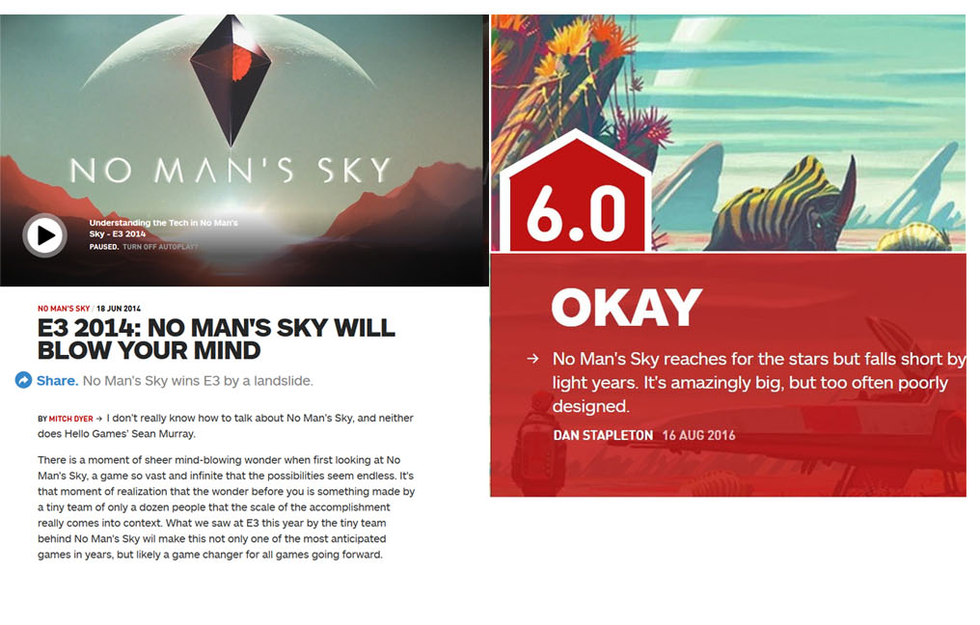Imagine the most amazing place you could visit. Beautiful vistas, crystal clear waters, you name it. You're there. What would you do there? Take on adventurous activities, lounge around? Whatever you want to do, you can. Who would you want to meet there? Celebrities, sports stars, or maybe no one at all? It doesn't matter. Whoever you want to meet, you'll find there. Whatever you want to eat, it'll be there. Favorite car? It's there. Anything you could possibly imagine, you'll find it there.
Sounds great, right? For most of us, we know that a place like this could never exist; you'd be asking for the world. But recently, a group of games developers promised it. Not just the world, but 18 quintillion. No Man's Sky was marketed as a massive universe in which players could experience discovery of infinitesimal planets, and forge their own destiny by doing whatever they desired. Every planet would be different; procedural generation would allow the game to create a random planet with random flora and fauna. A new game in every world. A dream in reality, but through the eyes of the developers and gamers everywhere, a universe that could be attainable.
What resulted was nothing short of a disaster. The release was mired with bugs and performance issues, and the universe that the developers hoped would connect with every person's fantasies was met with disappointment. Procedurally generated animals in game turned into Frankenstein's monsters. Infinite planets led to monotonous mining expeditions. Truthfully, it's not a bad game. It lacks the content that a $60 game would provide, but what it achieves is impressive in its own way. But once again, a product's most useful weapon backfired: hype.
It's happened far too many times in the gaming world; a developer releases a beautifully polished demonstration of their game, and what follows is a massive media and consumer outburst of excitement. Pre-order sales skyrocket, articles praise the game all across the board, and a multitude of awards are handed to a game that hasn't even been released. Skepticism is thrown out the window; the glass isn't even half full, but overflowing. And in the end, it all comes crashing down. Gamers cry out in anger over their crushed expectations. Media outlets flip the script and bash the game, when only a few months before they placed it on the highest pedestal. Hype brought the game to everyone's attention. Failure to live up to it caused its downfall.
An example of games media hyping before release, and backtracking after. (click picture for full image)
It's a vicious cycle that hurts developers and consumers alike. The only way to fix it is to keep both parties accountable. Consumers need to stop pre-ordering games, and have to make their gaming purchases and choices based not on hype, but on actual released gameplay. Devs have to realize that the consumer deserves a completed game on release, and sooner rather than later, the next poorly made AAA game may just bring the entire games market down. We've reached the point in gaming where the sky is the limit. But the only way to go higher is to stay grounded.












































